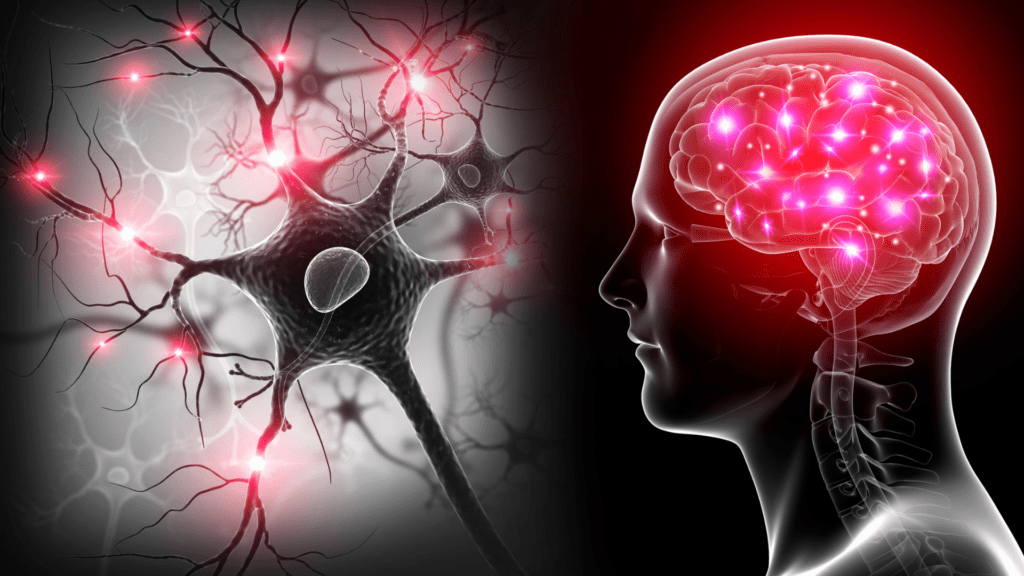🎧 Audio Version
In the intricate landscape of the human brain, the phenomenon of neurogenesis stands as a testament to our ever-evolving cognitive abilities. Neurogenesis, the birth of new neurons, was once believed to be exclusive to our developmental years. However, recent advances in neuroscience have shattered this misconception, revealing that our brains are capable of generating neurons throughout our lives.
This continuous renewal offers a unique window into the world of self-improvement, emphasizing the brain’s innate ability for neuroplasticity and the rewiring of neural pathways. By harnessing the power of neurogenesis, individuals can pave the way for enhanced cognitive functions, adaptability, and resilience. Delving into the depths of neuroscience-based self-improvement, this guide will explore the mechanisms behind neurogenesis and its profound implications for personal growth and transformation.
Understanding the Intricacies of Neurogenesis
Neurogenesis, at its core, is the birth of new neurons. This process, deeply rooted in the realm of neuroscience, has long been a topic of fascination and study. For many years, it was believed that the human brain, once fully developed, ceased to produce new neurons. However, groundbreaking research has since debunked this myth, revealing that our brains are, in fact, capable of generating neurons throughout our lives.
The process of neurogenesis is not just a mere production of cells. It’s a complex dance of cellular events, deeply intertwined with the principles of neuroplasticity. Neuroplasticity refers to the brain’s remarkable ability to reorganize itself, forming new neural connections throughout life. This adaptability ensures that our brains remain resilient and capable of learning and adapting to new experiences.
The Science Behind Neurogenesis: A Deep Dive
To truly grasp the concept of neurogenesis, one must delve into the microscopic world of the brain. Within this intricate organ, billions of neurons communicate, forming the basis of our thoughts, emotions, and actions. These neurons don’t function in isolation. They’re supported by a network of cells, ensuring that every electrical impulse and chemical message is transmitted accurately.
When neurogenesis occurs, stem cells within specific regions of the brain differentiate into neurons. These new neurons then integrate into existing neural circuits, enhancing the brain’s capacity for information processing. One of the most notable regions for this activity is the hippocampus, a critical area for learning and memory.
3 Key Factors That Boost Neurogenesis
While the brain has the innate ability to produce new neurons, certain factors can enhance this process:
- Physical Activity: Regular exercise, especially aerobic activities, has been shown to stimulate the production of new neurons, particularly in the hippocampus.
- Diet: Certain foods and nutrients, such as omega-3 fatty acids, have been linked to increased rates of neurogenesis.
- Enriched Environments: Exposure to stimulating environments, filled with new experiences and learning opportunities, can boost the birth of neurons.
In the subsequent chapters, we’ll delve deeper into the role of the hippocampus in neurogenesis, the differences between developmental and adult neurogenesis, and address some of the most pressing questions surrounding this fascinating topic.
How Does Exercise Influence Neurogenesis?

Exercise, often hailed as a panacea for various ailments, plays a pivotal role in the realm of neurogenesis. From a neuroscientific perspective, physical activity goes beyond just building muscles or improving cardiovascular health. It has a profound impact on the brain, fostering an environment conducive to the birth of new neurons.
When we engage in physical activity, there’s an increase in blood flow to the brain. This enhanced circulation delivers a richer supply of oxygen and nutrients, essential for neuronal health. Moreover, exercise triggers the release of specific growth factors, chemicals that promote cell growth and differentiation. One such factor, brain-derived neurotrophic factor (BDNF), is particularly crucial for neurogenesis. BDNF not only supports the survival of existing neurons but also stimulates the growth and differentiation of new neurons and synapses.
Furthermore, exercise aids in reducing inflammation and stress, both of which can hinder neurogenesis. By mitigating these negative factors, physical activity ensures that the brain remains in an optimal state for the birth and integration of new neurons.
The Role of the Hippocampus in Neurogenesis
The hippocampus, a seahorse-shaped structure nestled deep within the brain, is often at the forefront when discussing neurogenesis. This region is vital for memory formation, spatial navigation, and emotional regulation. But what makes the hippocampus truly special is its remarkable capacity for neurogenesis, especially in the subgranular zone.
Research has shown that thousands of new neurons are born in the hippocampus daily. These neurons, once matured, integrate into the existing hippocampal circuitry, playing a role in memory consolidation and cognitive flexibility. The continuous addition of these neurons ensures that the hippocampus remains adaptable, capable of encoding new memories while simultaneously retrieving old ones.
Interestingly, the rate of neurogenesis in the hippocampus can be influenced by various external factors. As previously mentioned, exercise can boost this rate. Conversely, chronic stress and aging can reduce the production of new neurons in this region.
Dentate Gyrus Neurogenesis: What You Need to Know
Within the hippocampus lies a region known as the dentate gyrus. This area is particularly active in terms of neurogenesis. The new neurons born here play a crucial role in pattern separation, a process that helps distinguish between similar memories, ensuring that they don’t get muddled up.
From a neuroscientific perspective, the continuous birth of neurons in the dentate gyrus is essential for cognitive processes. It allows for the fine-tuning of memories, ensuring that we can differentiate between similar yet distinct experiences. For instance, it helps us remember where we parked our car today, as opposed to where we parked it a week ago, even if the locations were close.
In the upcoming sections, we’ll delve deeper into the nuances of developmental versus adult neurogenesis and address some common queries about this captivating subject.
Developmental vs. Adult Neurogenesis: A Comparative Analysis
Neurogenesis, as a phenomenon, spans across different stages of human life. While the process remains consistent in its core objective – the birth of new neurons – its prevalence, purpose, and implications vary between developmental and adult stages.
Developmental Neurogenesis: This phase begins during the embryonic stage and continues through early childhood. During this period, the brain experiences rapid growth, with billions of neurons being formed to establish the foundational neural network. The primary objective here is to create the vast and intricate web of connections that will serve an individual throughout their life. This period is characterized by an explosion of synaptic connections, where neurons form networks that lay the groundwork for all future cognitive and motor functions.
Adult Neurogenesis: Contrary to earlier beliefs, the adult brain is not a static entity. While the rate of neurogenesis slows down compared to the developmental phase, it never truly halts. Adult neurogenesis predominantly occurs in specific regions, like the hippocampus. The new neurons generated during this phase play a crucial role in learning, memory, and emotional responses. They contribute to cognitive flexibility, allowing adults to adapt, learn, and grow from new experiences.
Neurogenesis in Humans: A Lifelong Journey?
The concept that neurogenesis is a lifelong process has revolutionized our understanding of the brain’s adaptability. For years, it was believed that once neurons died, they were gone forever. However, contemporary research has illuminated the brain’s resilience and its ability to regenerate.
Factors like a balanced diet, mental stimulation, and avoiding chronic stress can promote neurogenesis even in advanced age. While the rate might not match that of our younger years, the brain’s ability to produce new neurons and rewire existing connections remains a testament to its incredible adaptability.
Addressing the Question: Can the Brain Regrow Neurogenesis?
The concept of the brain’s ability to regrow or enhance the rate of neurogenesis has been a focal point of numerous scientific inquiries. Delving deeper into this question, we find layers of complexities, intricacies, and a myriad of factors at play.
The Brain’s Resilience: At the heart of this discussion is the brain’s remarkable resilience. While it’s true that certain adversities, such as traumatic injuries or prolonged exposure to stress, can impede the process of neurogenesis, the brain is not easily deterred. Its inherent plasticity ensures that even in less-than-ideal conditions, there’s a persistent effort to generate new neurons and establish fresh connections.
The Role of Age: Age, undeniably, plays a role in the rate of neurogenesis. Younger brains exhibit a more robust rate of neuron production. However, contrary to popular belief, aging doesn’t bring this process to a grinding halt. Instead, while the rate may diminish, the potential for neurogenesis remains, especially in specific brain regions like the hippocampus.
External Interventions: Beyond the brain’s natural capabilities, external interventions can significantly influence neurogenesis. Physical activity, for instance, not only enhances blood flow to the brain but also releases growth factors that support neuron development. Engaging in cognitive challenges, like puzzles, reading, or learning new skills, provides the necessary stimulation for the brain to forge new pathways. Moreover, a diet rich in antioxidants, omega-3 fatty acids, and other neuron-friendly nutrients can bolster the brain’s neurogenic efforts.
Environmental Factors: The environment in which one resides can either be a boon or a bane for neurogenesis. Environments that offer varied stimuli, opportunities for learning, and positive social interactions can amplify the rate of neuron production. Conversely, environments marked by chronic stress, isolation, or monotony can stifle the brain’s neurogenic endeavors.
While the brain’s capacity for neurogenesis may be influenced by various factors, its intrinsic drive to regenerate and adapt remains undeterred. With the right interventions and a conducive environment, the potential for neurogenesis can be harnessed effectively, paving the way for cognitive enhancement and overall brain health.
Decoding the Age Factor: When Does Neurogenesis Cease?

The relationship between age and neurogenesis has been a subject of extensive research and debate within the neuroscience community. The age factor, with its intricate nuances, offers insights into the brain’s dynamic nature and its ability to adapt over time.
The Early Years: During the embryonic and early childhood stages, the brain experiences a surge in neurogenesis. This period is characterized by rapid neuron production, laying the foundation for cognitive and motor functions. The brain’s plasticity is at its peak, allowing for swift learning and adaptability to new experiences.
Adulthood and Neurogenesis: As individuals transition into adulthood, there’s a noticeable decline in the rate of neurogenesis. However, it’s crucial to understand that this decline doesn’t equate to a cessation. Regions like the hippocampus continue to produce new neurons, albeit at a slower pace. These neurons play a vital role in memory consolidation, emotional regulation, and cognitive flexibility.
The Golden Years: The misconception that neurogenesis halts in old age stems from observations of a reduced rate of neuron production in the elderly. While it’s true that aging brings about certain physiological changes that can impact neurogenesis, the process remains active. Factors such as a stimulating environment, physical activity, and a balanced diet can further support and even enhance neurogenesis in the later stages of life.
The Role of External Factors: Apart from the natural aging process, external factors can influence the rate of neurogenesis across different age groups. Chronic stress, exposure to toxins, and lack of mental stimulation can hinder neuron production. On the flip side, positive interventions, such as learning new skills, engaging in social interactions, and maintaining a neuron-friendly lifestyle, can promote neurogenesis irrespective of age.
In essence, age, while influential, is not the sole determinant of neurogenesis. The brain’s inherent adaptability ensures that neurogenesis remains a continuous process, reflecting the organ’s resilience and capacity for renewal. As we delve deeper into the concluding section, we’ll explore the transformative potential of neurogenesis and its far-reaching implications for cognitive enhancement and holistic well-being.
7 Proven Secrets to Unlocking Your Brain’s Potential Through Neurogenesis
The brain, with its intricate networks and dynamic capabilities, holds secrets that, when unlocked, can lead to unparalleled cognitive enhancement. Here are seven proven strategies rooted in neuroscience that leverage the power of neurogenesis:
- Stay Physically Active: As highlighted earlier, regular exercise, especially aerobic activities, stimulates the production of new neurons. Whether it’s a brisk walk, jogging, or even dancing, keeping the body in motion has direct benefits for the brain.
- Engage in Continuous Learning: Challenging the brain with new information or skills can boost neurogenesis. Whether it’s learning a new language, picking up a musical instrument, or solving puzzles, mental stimulation is key.
- Maintain a Balanced Diet: Foods rich in omega-3 fatty acids, antioxidants, and other essential nutrients support brain health and promote the birth of new neurons.
- Prioritize Sleep: Quality sleep is crucial for memory consolidation and the removal of brain waste. It also supports the optimal functioning of the hippocampus, a hub for neurogenesis.
- Manage Stress: Chronic stress releases cortisol, a hormone that can inhibit neurogenesis. Finding healthy ways to cope, such as through hobbies or social connections, can mitigate its effects.
- Stay Socially Connected: Social interactions stimulate the brain. Engaging in meaningful conversations, building relationships, and being part of a community can enhance cognitive functions and promote neurogenesis.
- Limit Alcohol and Avoid Drugs: Excessive alcohol consumption and drug use can hinder the production of new neurons. Moderation and informed choices are essential for maintaining optimal brain health.
Conclusion: The Transformative Power of Neurogenesis in Self-Improvement
In the vast realm of neuroscience, neurogenesis stands out as a beacon of hope and potential. The continuous birth of new neurons, even into adulthood, offers a unique perspective on the brain’s adaptability and resilience. By understanding and harnessing the power of neurogenesis, individuals can pave the way for enhanced cognitive functions, emotional well-being, and overall personal growth.
The journey of self-improvement, underpinned by the principles of neuroplasticity and the rewiring of neural pathways, is a testament to the human brain’s incredible capabilities. As we continue to unravel the mysteries of neurogenesis, one thing remains clear: our potential for growth, learning, and transformation knows no bounds.













